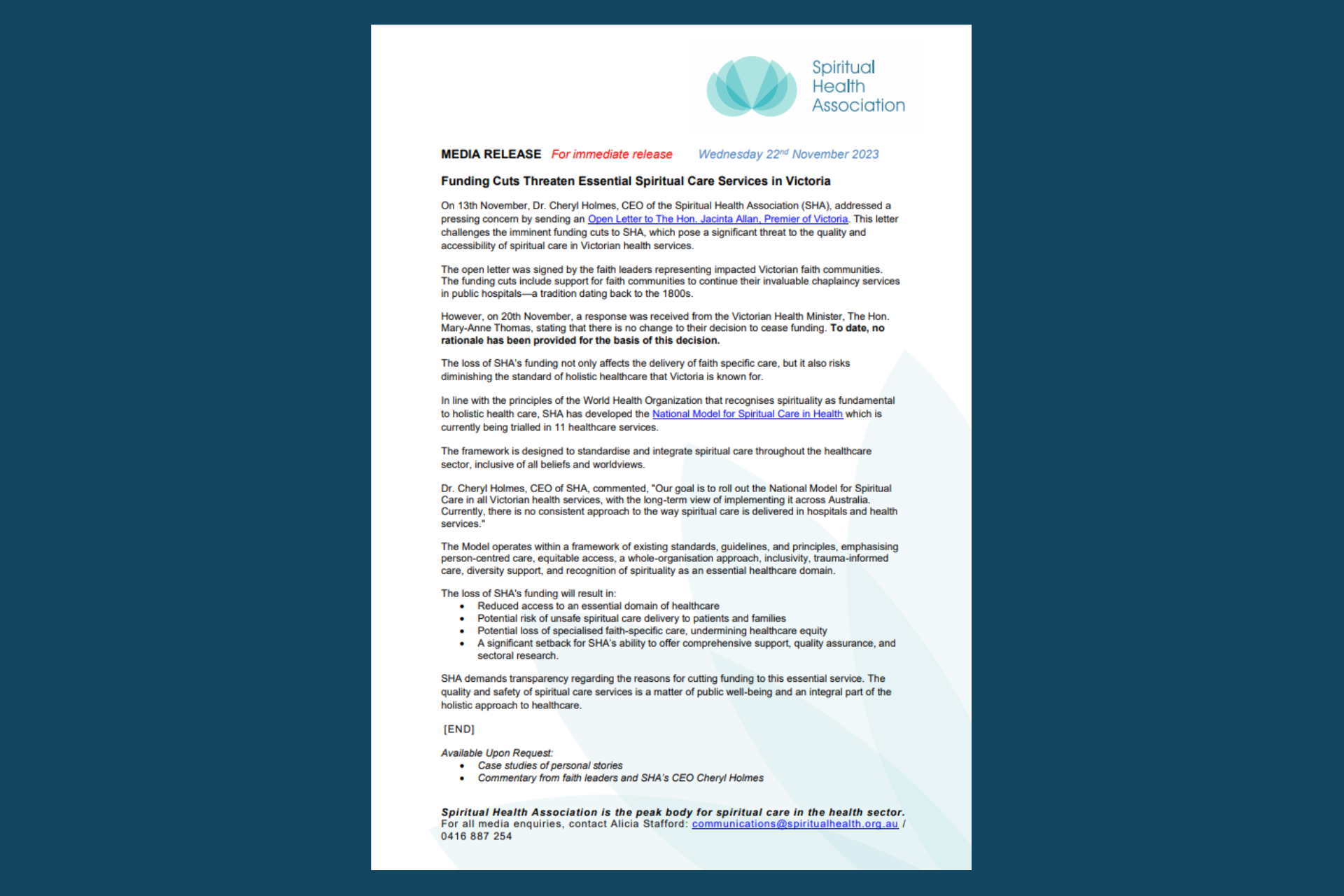SHA's Loss of Government Funding Threatens Essential Spiritual Care Services in Victoria

22nd November 2023
SHA's Loss of Government Funding Threatens Essential Spiritual Care Services in Victoria
On 13th November, Dr. Cheryl Holmes, CEO of the Spiritual Health Association (SHA), addressed a pressing concern by sending an Open Letter to The Hon. Jacinta Allan, Premier of Victoria. This letter challenges the imminent funding cuts to SHA, which pose a significant threat to the quality and accessibility of spiritual care in Victorian health services.
The open letter was signed by the faith leaders representing impacted Victorian faith communities. The funding cuts include support for faith communities to continue their invaluable chaplaincy services in public hospitals—a tradition dating back to the 1800s.
However, on 20th November, a response was received from the Victorian Health Minister, The Hon. Mary-Anne Thomas, stating that there is no change to their decision to cease funding. To date, no rationale has been provided for the basis of this decision.
The loss of SHA’s funding not only affects the delivery of faith specific care, but it also risks diminishing the standard of holistic healthcare that Victoria is known for.
In line with the principles of the World Health Organization that recognises spirituality as fundamental to holistic health care, SHA has developed the National Model for Spiritual Care in Health which is currently being trialled in 11 healthcare services.
The framework is designed to standardise and integrate spiritual care throughout the healthcare sector, inclusive of all beliefs and worldviews.
Dr. Cheryl Holmes, CEO of SHA, commented, "Our goal is to roll out the National Model for Spiritual Care in all Victorian health services, with the long-term view of implementing it across Australia. Currently, there is no consistent approach to the way spiritual care is delivered in hospitals and health services."
The Model operates within a framework of existing standards, guidelines, and principles, emphasising person-centred care, equitable access, a whole-organisation approach, inclusivity, trauma-informed care, diversity support, and recognition of spirituality as an essential healthcare domain.
The loss of SHA's funding will result in:
- Reduced access to an essential domain of healthcare
- Potential risk of unsafe spiritual care delivery to patients and families
- Potential loss of specialised faith-specific care, undermining healthcare equity
- Discontinuation of SHA's comprehensive support, quality assurance, and internationally recognised sectoral research.
SHA demands transparency regarding the reasons for cutting funding to this essential service. The quality and safety of spiritual care services is a matter of public well-being and an integral part of the holistic approach to healthcare.